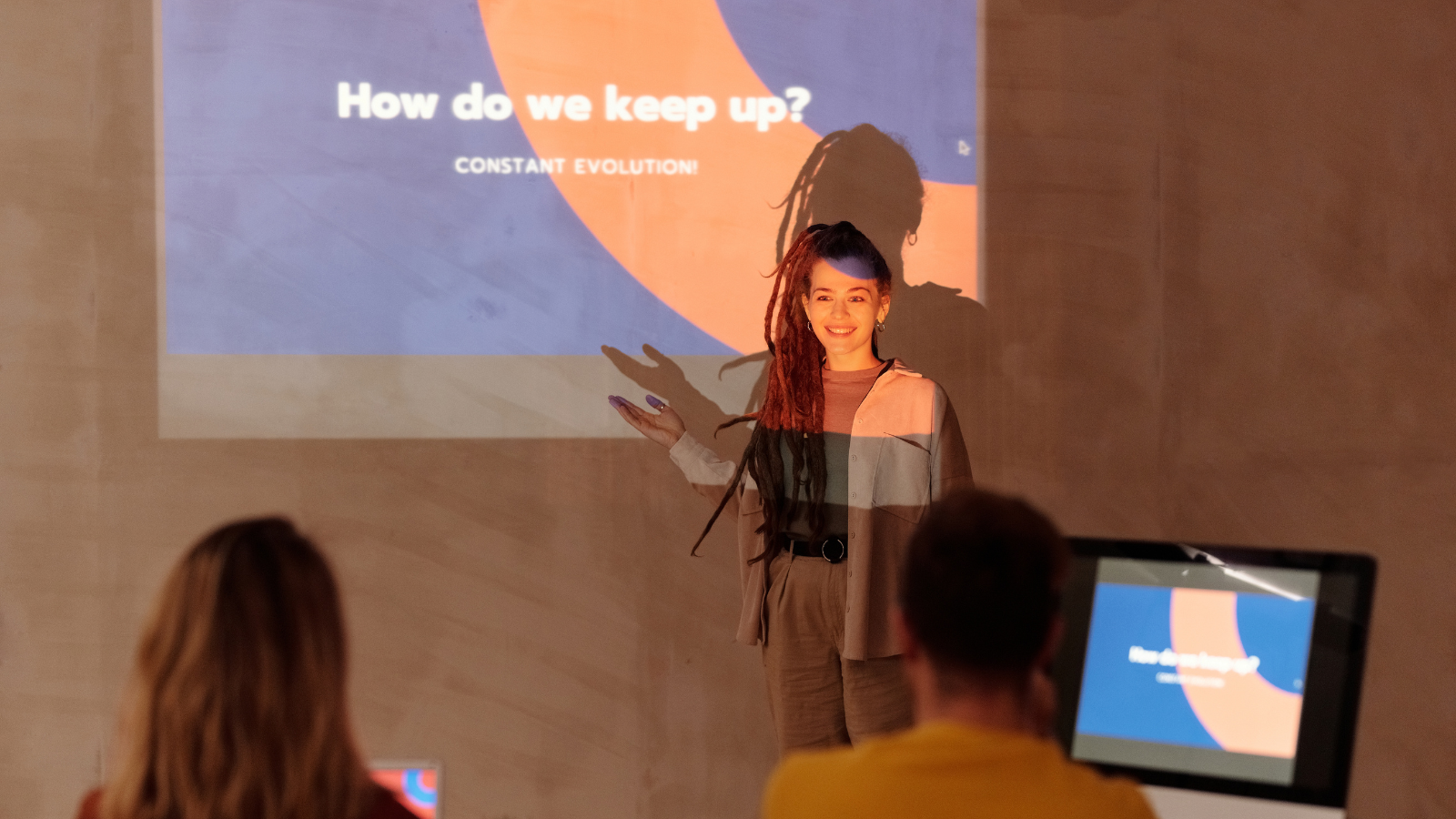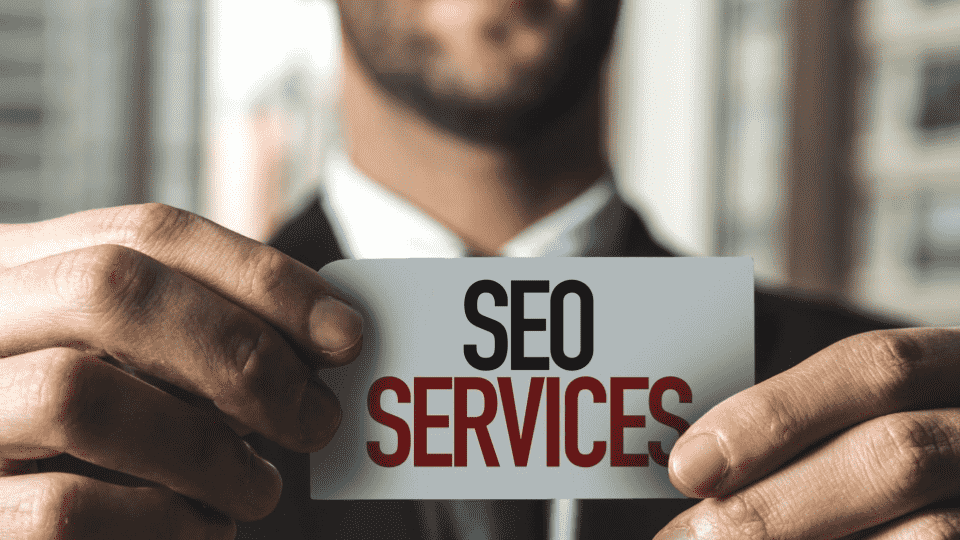PPC for Lead Generation, Platforms, Strategies and Interview with Ad Specialist
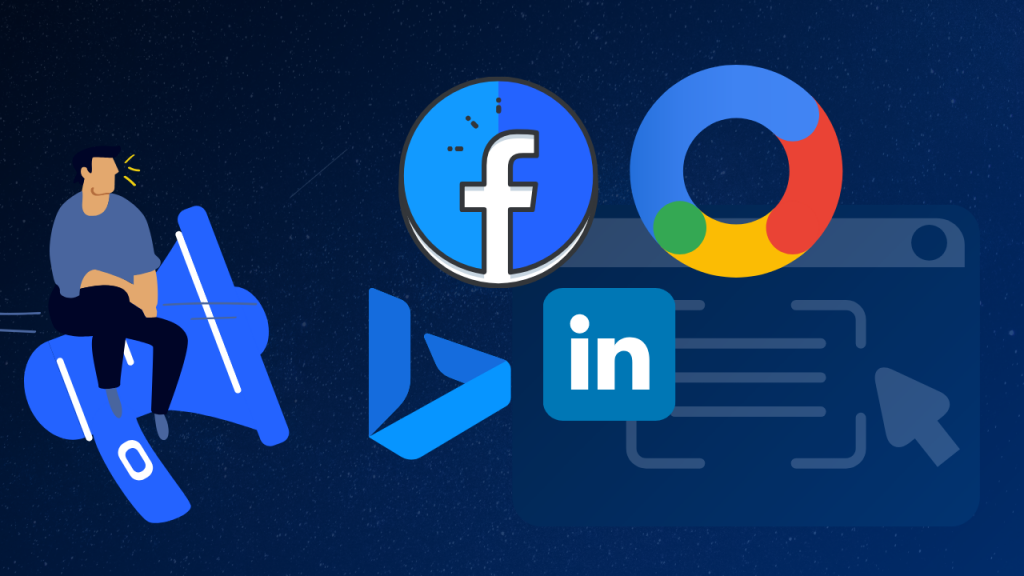
No matter how much you invest in optimizing your products and services, your ultimate goal is to generate quality leads and then convert them into paying customers.
There are many ways to do that, but PPC (pay-per-click) advertising is one of the best channels, even when you’re on a tight budget.
Why?
Because, when it’s done right, pay-per-click lead generation, or PPC, can constantly get you new first leads to feed the top of the funnel, so that you can later nurture those leads and turn them into loyal customers.
PPC for lead generation is known as a sales-generation tactic for e-commerce brands. e-commerce analytics can help you understand the keywords you should target, but for most companies, especially in B2B, the bigger use case is lead generation.
Also keep in mind that AdWords management is an essential facet of effective PPC advertising. A well-managed AdWords campaign ensures your ads reach your target audience, increase click-through rates, and ultimately drive conversions.
Blogging, email campaigns, and organic search can all help you generate more leads and they should remain an important part in your marketing campaign.
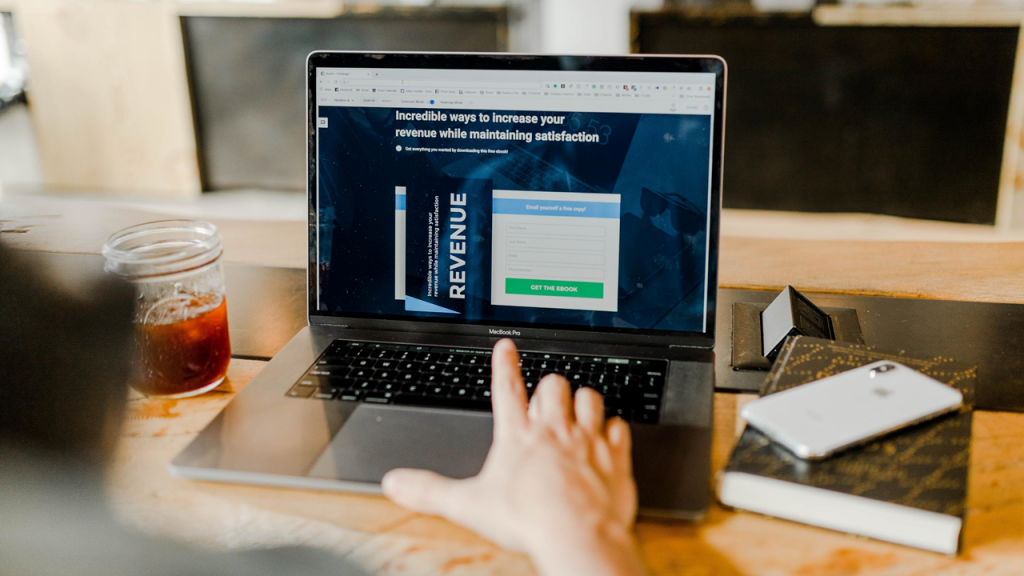
PPC landing page for lead capture: PPC is instant traffic and awareness that can turn into leads
However, unlike the PPC lead generation, they take much longer and require extensive effort from multiple departments. Meanwhile, PPC puts you in the spotlight, where you can have an impactful presence, generate high-quality leads, impressions, and boost engagement rates.
PPC Lead Generation Ad Platforms and Ad Types
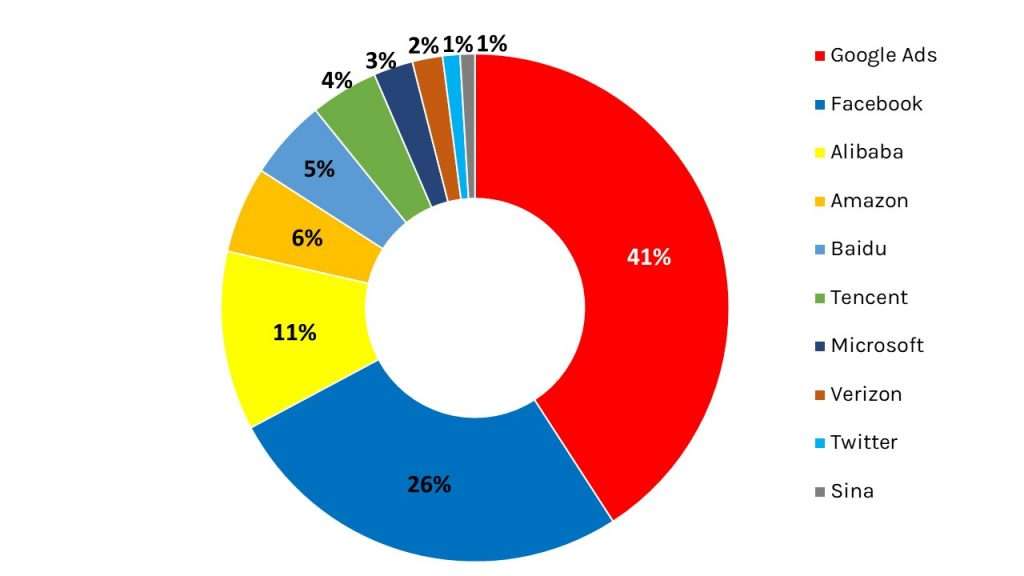
PPC lead generation: Biggest global ad market players sorted by absolute market share, based on https://www.emarketer.com/content/global-digital-ad-spending-2019
The good news for marketers is that there is an ad platform for every business niche under the sun.
Whether you have a small coffee shop or a global accounting firm, you can explore various PPC B2B lead generation ad platforms and ad types to boost the efficiency of your PPC campaign.
However, the challenge comes from leveraging the power of the right platform and crafting your ads in such a way as to target the right customer persona. Otherwise, you’ll generate the so-called “junk leads” that couldn’t benefit from your services.
The most popular PPC B2B lead generation platforms include:
- Google Ads
- Bing Ads
- Facebook Ads
- Instagram Ads
- Mobile in-app ads
According to eMarketer, Google and Facebook control U.S. digital ad spending, way ahead of its closest competitors.
Looking at Google's ad revenue growth, you can see the market trend of more and more spending in digital ads.
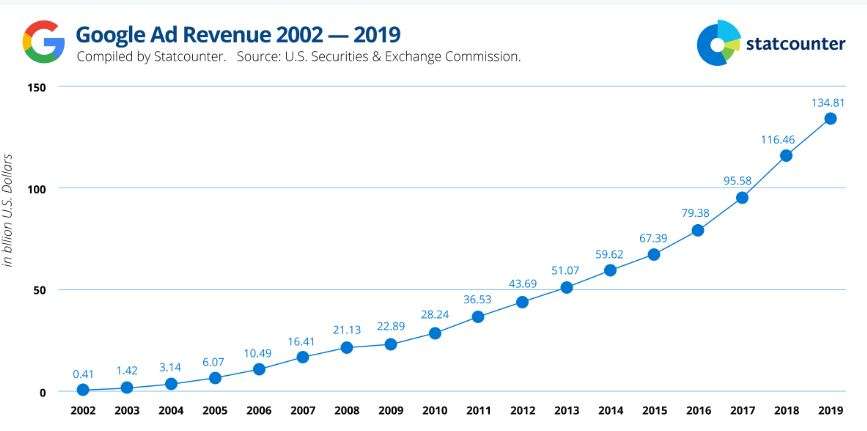
Google ad revenue development from 2002-2019 based on Statcounter
Now, let’s have a look at some ad types that can help you boost your lead generation KPIs:
PPC: you pay a fee for each time someone clicks on your ads. Unlike SEO, you don’t earn those visits organically, but you can quickly drive traffic to your website. Understanding the complexity of PPC pricing is crucial when optimizing your lead generation strategy. By grasping the various factors that influence cost, businesses can make informed decisions on budget allocation to ensure maximum efficiency and return on investment in their PPC campaigns.
Display: drawing attention to your products and services by displaying a banner, image, or text ad on Google Display Network or Facebook Ads.
Impression bidding: this strategy allows you to focus on more people seeing your ads rather than clicking on them, via
(cost-per-thousand viewable impressions).
Retargeting: Unlike the classic ads, retargeted ads appear to people who have visited one of your pages in the past, but chose to leave them. Each time a person sees one of your retargeted ads, your brand gains more recognition and is more likely to become a customer.
Quality PPC Lead Generation Tactics That Work
Now that you’re familiar with the most popular ad types and platforms, here are some ways you can put them in practice and get started with your PPC lead generation campaign.
Facebook Lead forms
Considering that about 80% of all Internet users have Facebook and that Facebook advertising is the most targeted form of advertising to date, you would be missing out if you were to ignore it.
When setting up your Facebook ad campaign, you can filter the audience by age, location, gender, and interests, so that your ads get precisely where they need to.
What’s more, Facebook ads are cheap: on average, businesses spend a little more than $3.42 per conversion but generate over $1,500 in sales.
By using Facebook Lead forms, you can make your ads even more effective and learn more about your users in the process.
You can customize your forms to focus on more volume or higher intent.
Depending on your goals, you can ask your audience details such as full name, email address, location, or job title.
Give users an incentive to fill in the form, such as access to a webinar, white paper, e-book, or exclusive offer.
Single and Multi-Step Forms
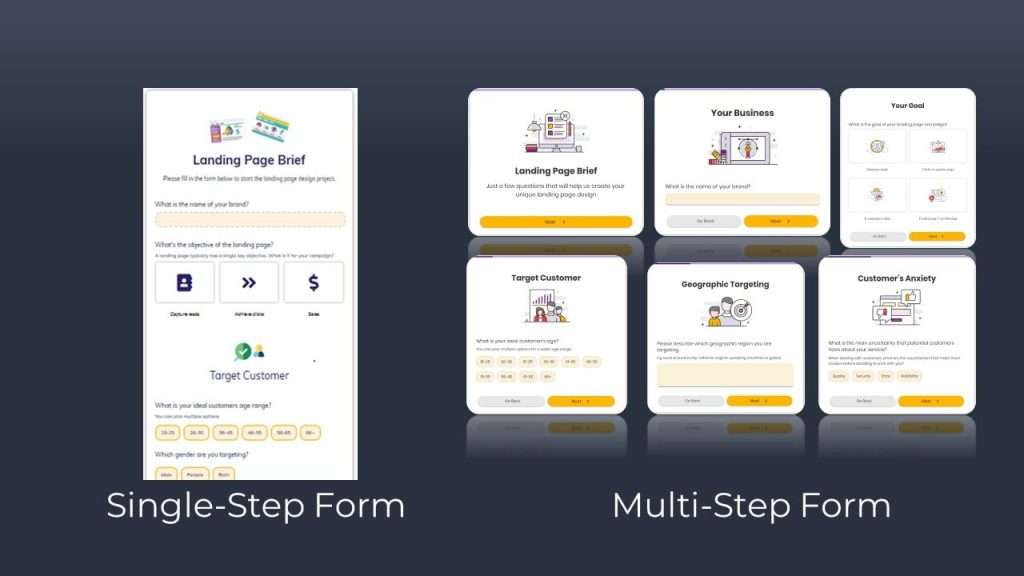
The different looks of online forms: Single-step and Multi-step forms used in pay per click lead generation
As part of your PPC lead generation ad campaign, you can attach a single or multi-step form to generate quality leads. Forms help you collect leads straight from the ad, and those who click on it can engage with your company by filling out the form.
Just like in the case of Facebook forms, Google Ads lead forms should offer an incentive so that users fill them in. For example, an in-depth guide on the industry, a market study, access to news and insights, special promotions, case studies, or e-books.
The choice between single and multi-step forms should be made depending on how much information you require from the user. For example, if you only need their email address, then a single-step form will do.
However, if you need a full name, email, phone number, location, and job title, then you should use a multi-step form instead. This type of form is split into multiple sections. This makes it more user-friendly and reduces the odds of people dropping out after filling in just one field.
No matter what form you decide to use, remember that it still needs to include an enticing call to action. In an age when users are bombarded with marketing messages, you need to think beyond the traditional Buy Now! CTA in PPC ads. And consider less aggressive alternatives that add value.
Is it a Good Strategy to use PPC Lead Generation in B2B Marketing?
Yes, it does. In fact, it’s one of the most common misconceptions that you would only be using PPC ads if you work on a B2C business model.
PPC can actually help you get more leads and build quality relationships with your partners.
In the B2B world, the value of one lead is much higher and you can generate a huge return on investment.
However, to enjoy these results, you have to identify your audience, target the right keywords, and optimize your landing pages.
What Are the Most Popular PPC Platforms?
Google Ads remain the most popular PPC B2B lead generation platform and you can’t really beat its traffic and keywords.
However, it’s also very competitive, which is why more and more businesses that have had a bad experience with it turned into Bing Ads.
In terms of social media, Facebook reigns supreme, but, depending on your audience, you should also try Instagram (suitable for young, creative audiences and visual-driven content) or LinkedIn (recommended for professional audiences). According to Jack Shepherd, Facebook has become the most powerful ad platform, with its machine-learning that helps find your ideal customers, as well as the volume of daily active users giving you the ability to scale your ad spend.
Interview with Sophie Logan, PPC Manager at Adzooma
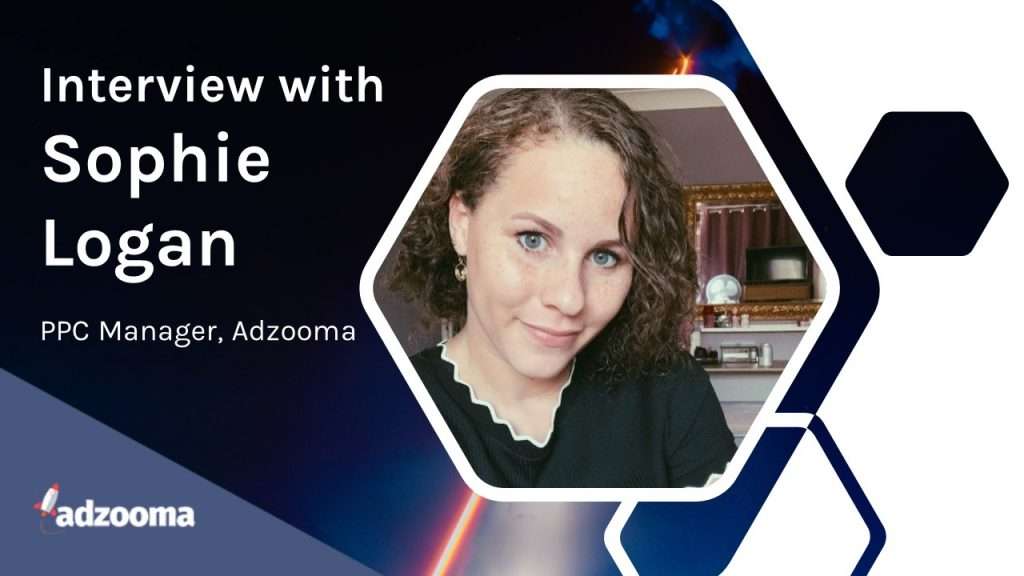 Pay per click lead generation expert, Sophie Logan, PPC Manager at Adzooma
Pay per click lead generation expert, Sophie Logan, PPC Manager at Adzooma
Is PPC for lead generation an effective tactic for any industry and niche?
Yes. The benefit of PPC for lead generation is that there are many targeting methods which allow you to narrow a large audience pool down to those who match your target audience. These methods include keywords, which determine which search results in your ads show in, demographics including age, gender and parental status, and affinity audiences which reflect the interests and behaviours of an individual.
As long as you have an understanding of who you want to reach, there are options which you can use to match your campaigns to your target audience.
For example, if you run a boutique wedding dress company then there are a number of targeting options you can use to ensure your ads are shown to the most relevant of audiences.
Keywords: Bespoke Wedding Dress, Luxury Wedding Dress, Unique Wedding Dress
In-market audience: Bridal Wear
Affinity audiences: Luxury Travellers
Excluded demographic: Married
What are the different characteristics, comparing Google ads and Facebook for lead capture?
The huge differences in the two make it very difficult to do a like for like comparison of the two platforms. However, the main difference which may impact the effectiveness of capturing leads for a business, is intent.
With Google, users are actively searching for a product or services, meaning they will have a high level of intent to convert.
They are looking for that product or service to fulfill their need, and if your ads and website can do that, then you are going to be likely to get them to convert.
On the other hand, when an individual sees an ad on Facebook it is because they have been targeted, not because they have searched for the product or service themselves. This means that they will have a lower level of intent and therefore unlikely to convert.
Whilst Google is more likely to see short term results in lead generation, it is important to remember the impact that a Facebook ad may have on an individual to convert in the future.
When should marketers send PPC traffic directly to the checkout page of a product and when to lead magnet, e.g. free or low price offer?
When search users click through a PPC ad, they are looking for a landing page which clearly indicates that you have the right product or service that they are looking for.
This means that you need to choose the most relevant landing page for the ad and its content.
Not only does this reassure the users that they are in the right place when they arrive, but it also helps to improve your quality score as the landing page is relevant to the PPC ad and its associated keywords.
In terms of what landing page to send users to, it would be more effective to send individuals to a product information page rather than to start the checkout process for them.
This way they will be able to read the information they need to make the purchasing decision, and also become familiar with the business. Should a user be sent immediately to a checkout page, they are not given the opportunity to fact find or become comfortable with making a sale on the site.
Users need to know that the site they are visiting is safe and secure, and feel confident in purchasing through that website.
How would you change a PPC marketing strategy in difficult economic times? Is it wise to still invest in PPC and what’s different to times of growth?
The decision as to whether a PPC marketing strategy will be effective in uncertain economic times is highly dependent on your industry. Taking a step back and understanding the wider economic influences which will affect your performance online, is essential to decide on your strategy.
For example, during the Covid-19 pandemic, all bars and restaurants in the UK have been forced to close. As a result, there has been an almost complete drop off of bars and restaurants advertising on Google Ads.
They can not open for business, so there is no need for them to spend money to generate table reservations. Compare this to the run-up period before Christmas 2019, when bars and restaurant bookings were in high demand, and search results were flooded with table reservation ads.
Should PPC for lead generation not be suitable during a particular period of time, then there are other areas that businesses can work on to keep engagement strong without paying for campaigns. This includes improvements to websites and social media pages, SEO to improve organic performance and planning future campaigns for events such as Black Friday, Christmas and New Year.
You got to see a ton of PPC campaigns through your tool Adzooma. What are some learnings you on what are the key factors that make PPC successful?
In my opinion, what is most important when it comes to making a PPC campaign successful is your ad copy. Your text ad is most likely going to be the first impression which an individual has of your business and its products or service. If they come across a dull ad, full of spelling and grammar mistakes in their search results, that is going to negatively impact their opinion of your brand.
Your ad is your chance to make yourself stand out from the other advertisers and to draw potential customers to your site. The best way to do this is to include USP (unique selling points) in your ad copy, along with details about your products or service, effectively highlighting what sets you apart. This can be further enhanced by leveraging AI writing software to craft compelling and persuasive messaging.. These USPs should be truly unique to your business, and not a generic point that you will see across countless other ads. For example, instead of saying ‘Experienced Specialist, try ‘Over 30 Years’ Experience’. This helps to distinguish you from your competitors and shows searchers what you offer which others cannot.
It is also really important to make sure that your PPC ads do not have spelling or grammatical errors. Whilst such mistakes are easily made, it shows a lack of attention to detail and looks poor in your ads.
What are the biggest trends that you see in PPC marketing over the next few years?
Automation will continue to be one of the biggest PPC trends over the next few years. Whilst we have already seen huge breakthroughs in automated bidding strategies and responsive ad creation, platforms will continue to evolve to reduce the amount of manual work advertisers need to do. The benefit of this is that it allows advertisers to focus more on strategy and the wider direction of an account.
Rather than churning through mountains of manual tasks, advertisers will be able to put their skills and experience to better use. Working more on implementing new features, experimenting with ad copy and attribution models and expansion into other platforms will allow advertisers to take their online performance to the next level. For agencies, this will also free them up to spend more time communicating with their clients and working on long term account strategies. Among others, some approaches that can help agencies and advertisers free their time for more constructive endeavors is using online tools like paraphrasers, idea generators, and content creation tools.







